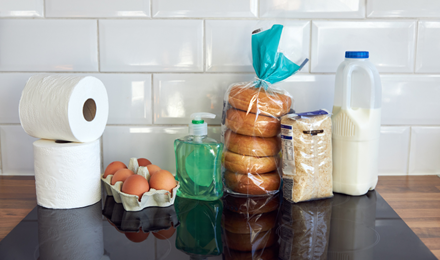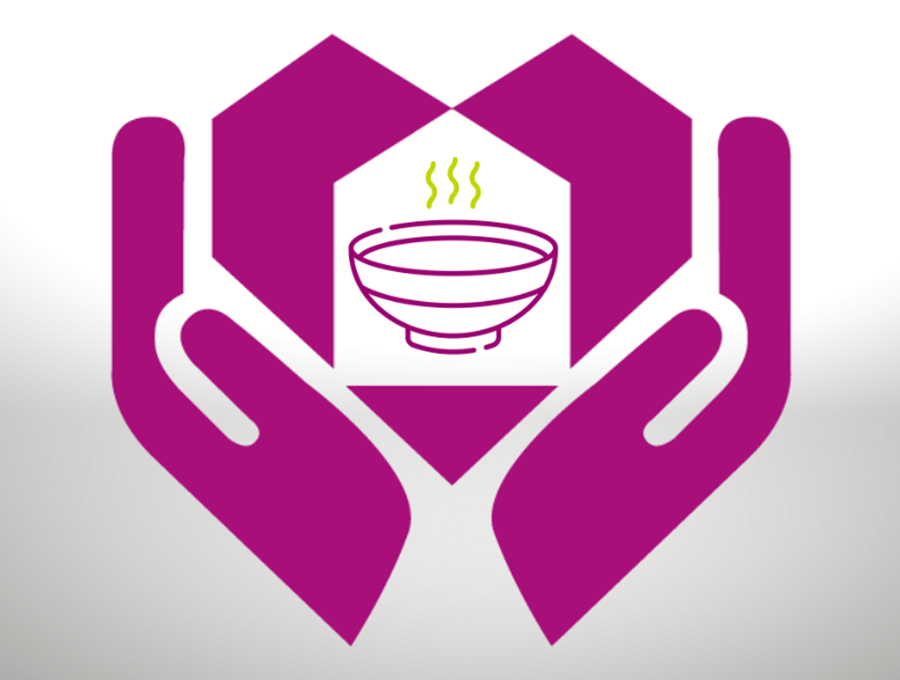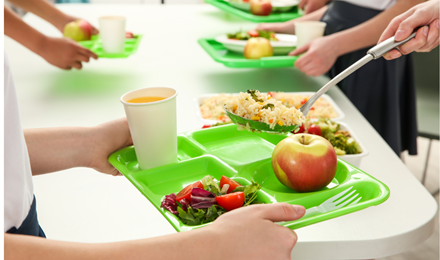 to think about your food
to think about your food
The increase in the cost of food has been noticeable over the last few months. It’s become something that many of us need to scrimp and save on, hunting for the best deals in the supermarkets.
Especially after the indulgence of Christmas, January can be a time of the year we feel we need to really watch our shopping budget, but eating good food is vital to our health and wellbeing. To help with this, we’ve pulled together some resources, handy tips and organisations who can help you out with your food shopping this month.
You can make food go much further with a little careful planning:
- Plan your meals – if you plan your breakfasts, lunches and dinners for the week before you go shopping, you’re much more likely to stick to just buying what you need
- Reduce your portion sizes – reducing the amount you put on your plate can be good for your wallet and your waistline. And if you’re still hungry you can go for seconds!
- Use up leftovers – don’t be tempted to scrape the leftovers into the bin! Small portions may be enough for a lunch the next day or you could create something completely new
- Make the most of everything – “scraps” like chicken bones, squash peelings, onion skins and carrot tops can be great for making stock
- Freeze liquids – leftover sauces, gravy and even wine are great to freeze and add to dishes later on for that extra bit of flavour.
- First in, first out (FIFO) – this is a rule professional chefs use! When you’re unpacking groceries, pack the new items behind old items to make sure the older items get used up first
- Understand expiration dates – we're being encouraged to judge by our senses and waste less food. Fruit, veg and a lot of dairy products are fine after their “best before” date. Check out the Stop Food Waste guide to product dates
To help us make sure we're still cooking nutritious and tasty meals on a budget, we've found some of the best recipes out there:
- Try these meals on a budget from ASDA Good Living magazine, including no-knead pizza, thai-spiced fishcakes and Moroccan soup!
- Tesco have a whole webpage dedicated to budget recipes, including this slow-cooker sausage and butter bean casserole which comes in at £1.38 per serving!
- One of the nation's favourite Chefs, Jamie Oliver, has a whole host of recipes that come in under £1 per portion
- If you have lots of mouths to feed, try Good Food's collection of budget meals for large families for some inspiration without breaking the bank
Wherever you do your food shopping, make sure you sign up to their loyalty card schemes.
Supermarkets such as ASDA, Tesco, Lidl, Sainsbury's and Morrisons all have them.
ASDA have a full customer loyalty scheme where customers can collect "ASDA pounds" by buying certain products or completing missions - these can then be spent in ASDA on your shopping.
LIDL PLUS is Lidl's loyalty scheme, which offers exclusive discounts. You get 4 coupons each week for different products, such as 20% off pizzas.
Tesco Clubcard allows customers to gain 1 point for each £1 spent. 1 point = 1 penny. You can start to turn points into money vouchers when you have a minimum of 150 points (£1.50). Customer also get exclusive Clubcard prices on 100s of products across stores.
You can compare all the supermarket loyalty schemes, and find out how to register, here.

Accessing foodbanks
Food banks offer a lifeline to many households. There are foodbanks all over the country, often linked to churches and charitable organisations. You can find your nearest foodbank here.
You need a referral for a lot of foodbanks. Our Money Advice Team can provide you with a referral if you need one.
Incredible Surplus
Previously known as The Real Junk Food Project Birmingham, Incredible Surplus intercept food and other usable materials that‘d otherwise go to waste from supermarkets, restaurants and other sources – you pay on a “Pay-As-You-Feel” basis. There are distribution locations, checkout their website for more information.






